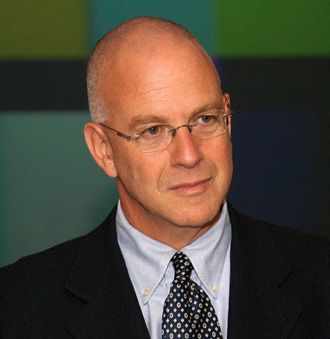 The First Stage of a Hundred-year War
The First Stage of a Hundred-year War
Are we winning the war on terror? Don't expect a knock-out punch, says Amos Guiora '79.
Few people are as intimately familiar with counterterrorism as Amos Guiora '79, who served as an officer and legal specialist in the Israel Defense Forces for nineteen years. He helped negotiate the safe passage between the Gaza Strip and the West Bank and implement the Gaza-Jericho Agreement. Guiora now teaches courses on the legal and policy aspects of counterterrorism at Case Western Reserve University's School of Law. American government officials frequently solicit his expertise, as do members of the press. A history major at Kenyon, Guiora returned to campus in the spring of 2006 to teach a course called "Global Perspectives on Counterterrorism," based on his book of the same name, which will be published by Aspen Publishers in 2008.
Do you think the current American military and sociopolitical approach to counterterrorism sets the correct priorities? Is it effective?
The question is, how do you define effectiveness in the context of counterterrorism? I argue that you cannot win the war on terrorism. I also argue that there is no such thing as a war on terrorism, because war can only be waged between states, and there is no state called Al Qaeda. This administration is conducting what I call "armed conflicts short of war." This approach is going to take years and years and years, and there's going to be no knock-out. The best you can hope for is to minimize terrorism--and to do so, you have to be more articulate in defining what it is.
Some argue that we have to "give up" certain rights in the struggle against terrorism. What do you think Americans have to give up, in terms of our way of life or the things we think of as quintessentially American?
In the context of balancing between civil rights and the equally legitimate national security rights, what are we willing to give up? Maybe the best example of this is determining where we are going to try individuals suspected of terrorism. Are we going to try them in civil court, if they're American citizens, or are we going to try them in military court, in Guantanamo Bay? These are the issues we're facing. Consider secret detentions: the United States held, and maybe still holds, individuals who have not seen the light of day since 2001. They're not American citizens, but they're individuals being held by the United States. They have not been tried in a court of law. They're being held in the dungeons of the world. We need to ask ourselves if that's what we really want. The point is that the political issues, the cultural issues, the legal issues, are all intertwined. How far are we going to tilt this way or that way?
Why do you think there hasn't been a terrorist attack on American soil since 9/11?
From the perspective of the terrorist, whether or not there's an attack is irrelevant on some level. It's safe to say that when you leave your house to go to the airport these days, you leave earlier than you used to. Bin Ladin, wherever the hell he's sitting in his cave, is impacting our daily lives without an act of terrorism. We as Americans always believe that every problem has a solution. We are still grappling with the absolute long-termedness of this. We are in the first stage of this hundred-year war, and that is something that is very difficult for us to understand.
Do you have feedback on this page?
